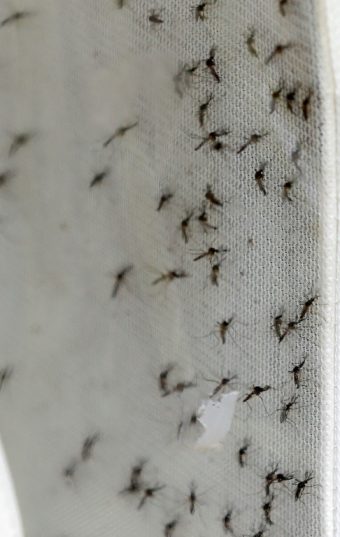Ex-HPCSA president remains member despite financial misconduct allegations
“Treat them carefully! You don’t want to hurt them,” said South Miami mayor Philip Stoddard as a sampling of the insects was released at a press event Thursday.
Reporters in the media scrum instinctively swatted away at the small cloud of insects — even though these mosquitos don’t bite because they’re all male.
Aedes aegypti mosquitos, which are not native to the region, transmit dengue, Zika and chikungunya diseases.
Dengue causes fevers, rashes, nausea and in some cases can be fatal, while Zika has been blamed for serious birth defects.
In 2016, fears over Zika led the United Nations health body to declare an international health emergency, which ended in November of that year.
Florida authorities have conducted aerial and land fumigations, but residents complained that the pesticides were both unhealthy and ineffective.
Hence the $4.1 million sterile mosquito project, approved by the Florida Health Department.

Sterile Aedes aegypti mosquitos arrived in a special net container at their release spot in a South Miami park
Produced by the US company MosquitoMate, the mosquitos are not genetically modified but instead infected with Wolbachia, a bacteria that only affects the insects and renders the males sterile.
“It’s all biological and very safe for the environment, there’s no effect on other insects, there’s no effect on humans or pets,” said MosquitoMate field operations manager Patrick Kelly.
Since the Aedes aegypti is an imported species, if it is fully eradicated it will not upset Florida’s ecosystem, Kelly told AFP.
“Our goal is to knock down the population of Aedes aegypti in South Miami,” Stoddard said. “If this is successful, the next would be to do it in a much wider area.”
In August, millions of Aedes aegypti mosquitos carrying the same bacteria were released in Rio de Janeiro.
Download our app and read this and other great stories on the move. Available for Android and iOS.